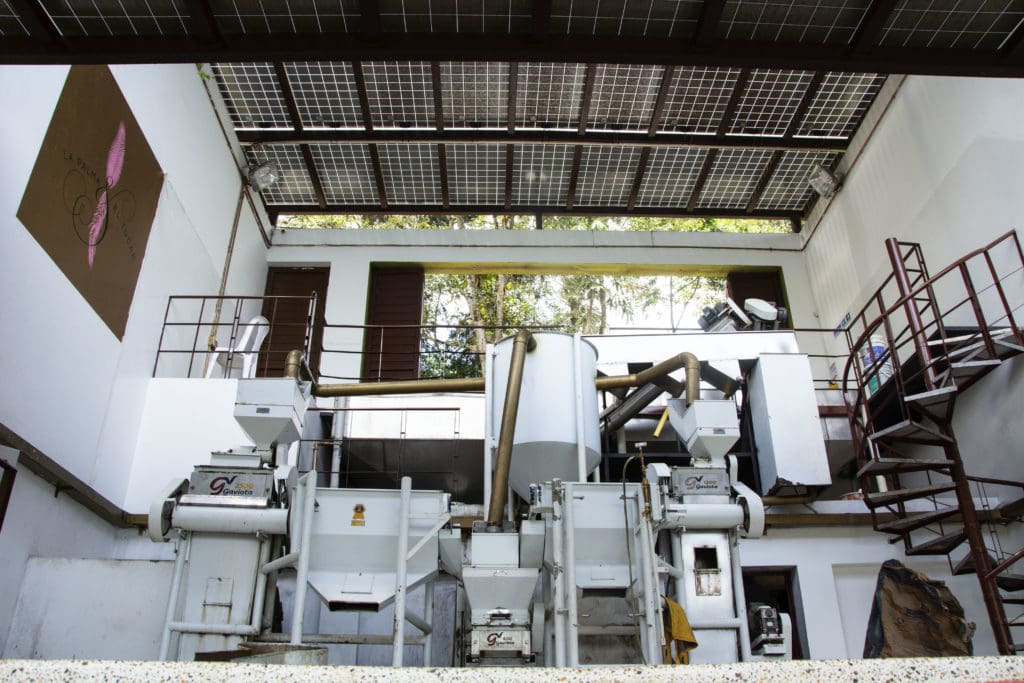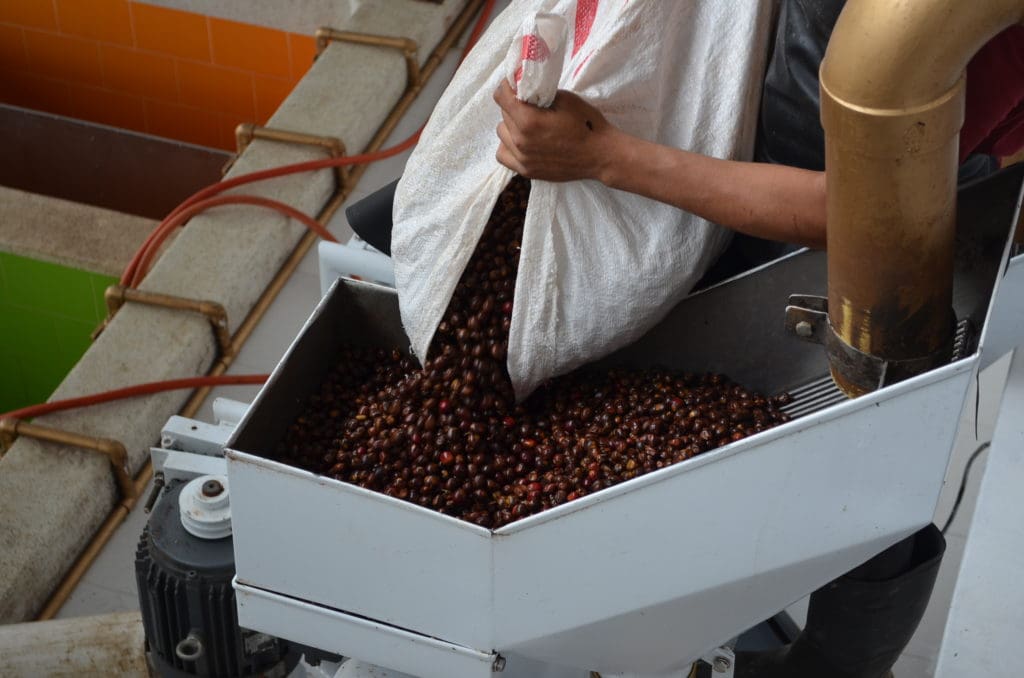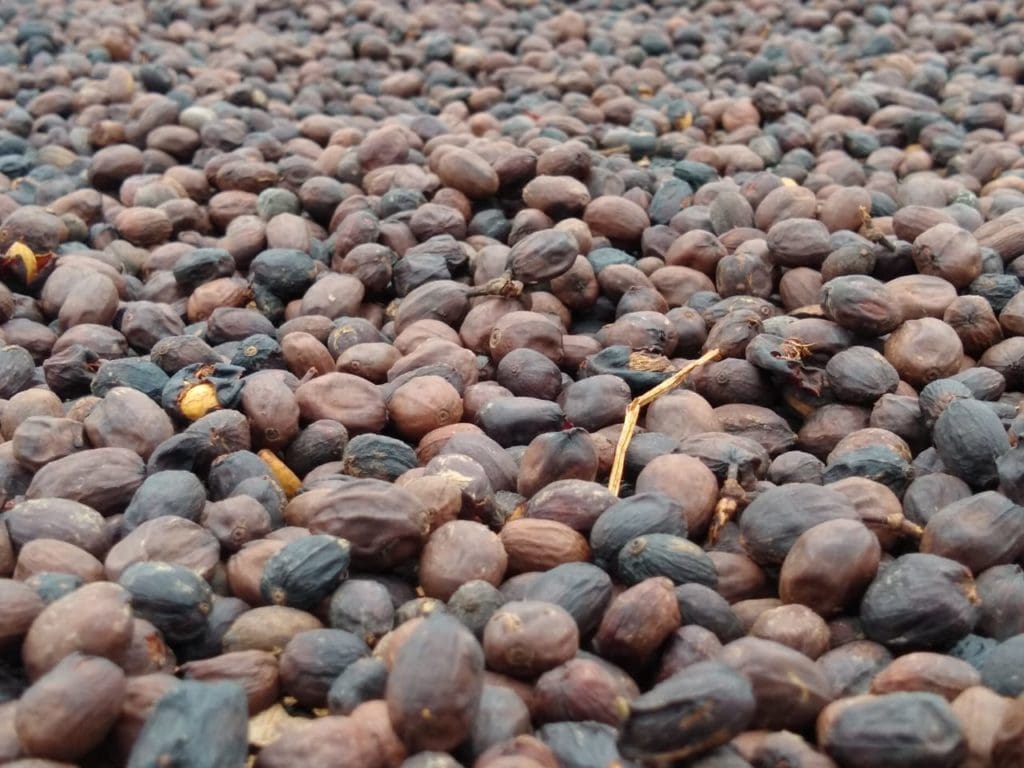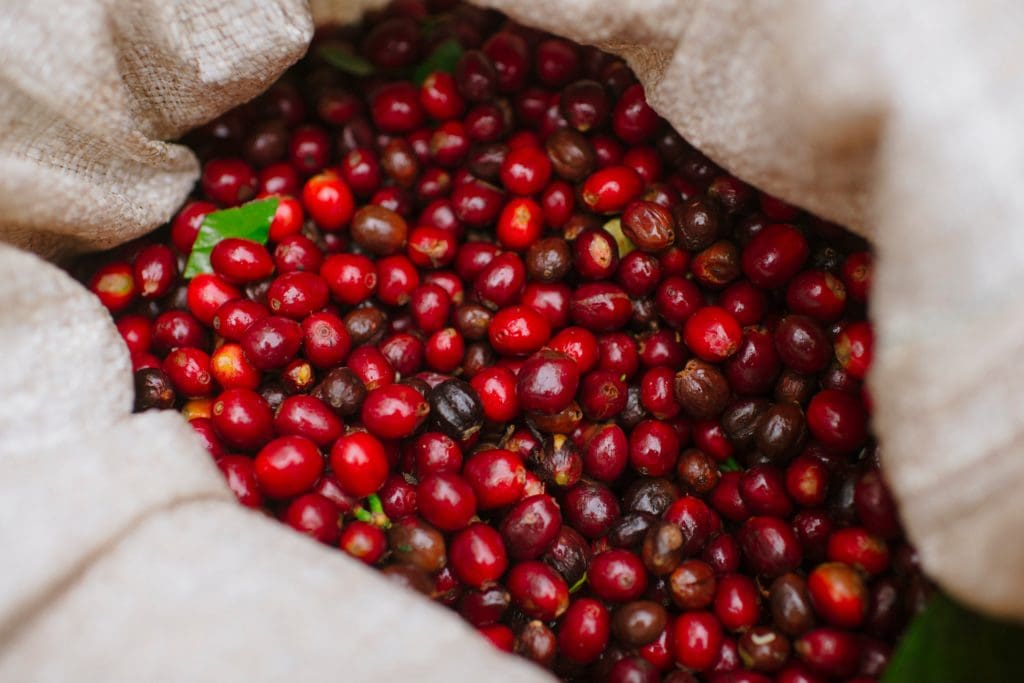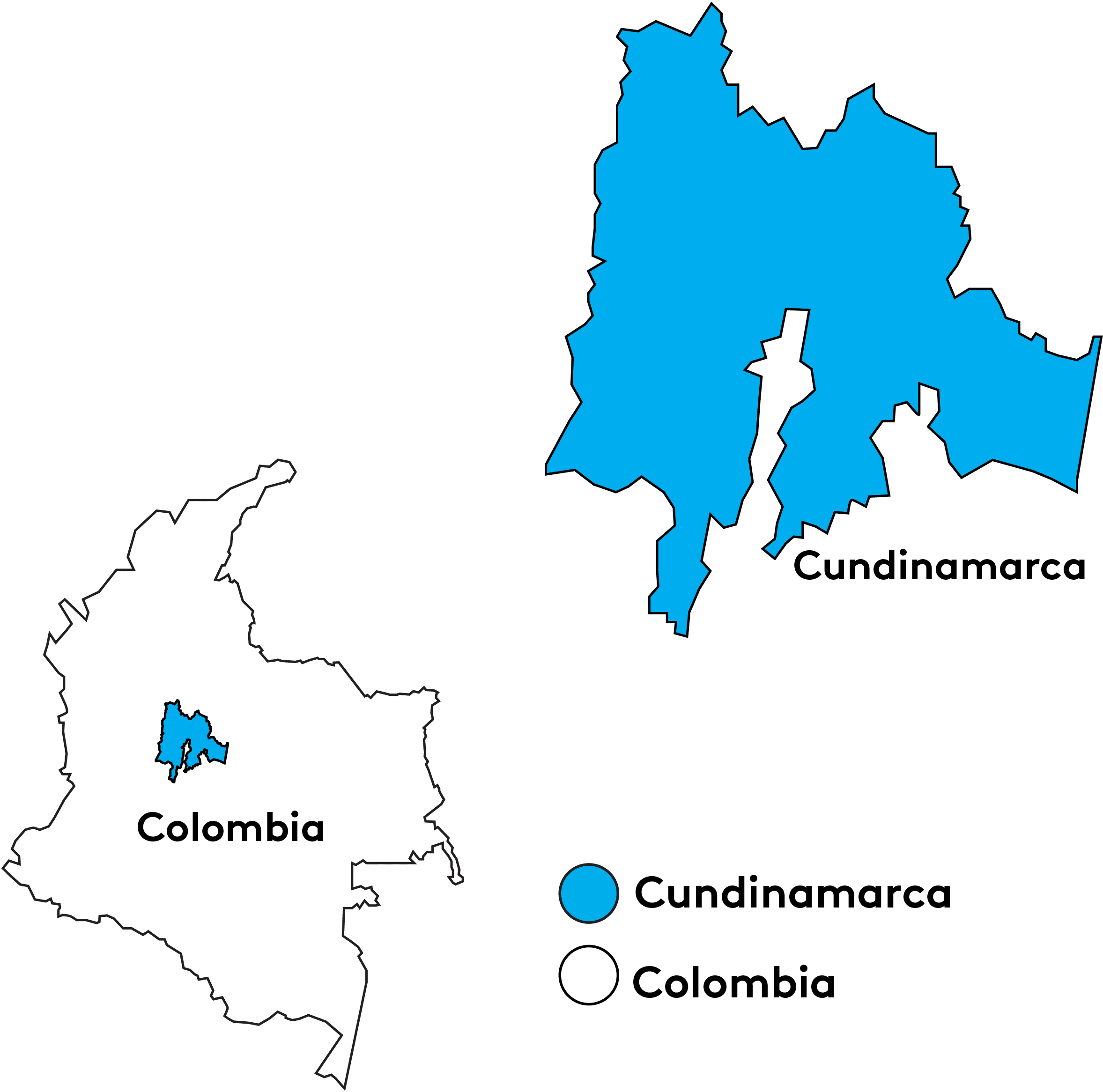La Palma & El Tucán is a farm, mill, and coffee eco-tourism destination tucked in the mountains of Zipacon, Cundinamarca. The farm’s name indicates the concept at the core of their operations: symbiosis, where actions are mutually beneficial. The same way that palm trees and toucans exist in a balanced relationship within their habitat, La Palma & El Tucán approaches the coffee ecosystem through sustainable production, innovative processing, and inviting everyone along the supply chain to visit the farm and see for themselves all that a coffee producing environment can be.
On the farm, the intersection between coffee agriculture and sustainable tourism is apparent. The open air cafe and cabins tucked into the forest encourage visitors to consider the continuum between spaces where coffee is produced and where it is consumed. The vegetable gardens, compost production, biochar production, water filtration, methods for fertilizing coffee trees, various shade tree species, and overall biodiversity of plant and animal life on the farm are indicators of permaculture principles in practice.
This lot is part of La Palma & El Tucán’s Estate & Varietals collection, which represents the finest coffees from the farm.
The Gesha variety is known for its explosive oral qualities and sweetness. It was first collected in Ethiopia in the 1930s. From there, it migrated to Costa Rica, Panama, and South America. At La Palma & El Tucán, the Gesha variety was first planted in 2012. Currently, there are 10,332 plants distributed among five plots. These plots are located between 1650 and 1800 meters above sea level. The temperature at the farm ranges between 9°C and 27°C with an average precipitation of 1300ml per year.
High relative humidity levels represent a big challenge when drying coffee, making it the trickiest variable that has limited La Palma & El Tucán’s capacity to process Natural coffees, due to the relative humidity levels at the farm, which can reach up to 90%.
Since 2016, Colombia started experiencing the consequences of El Niño, a climatic pattern that severely alters the regular conditions causing one of the most significant dry seasons in its history. The drop in the relative humidity levels opened a small window of opportunity for La Palma & El Tucán to try processing Naturals. Now, after the experiment, they have learned how to best continue to process small batches of Natural processed coffees.
